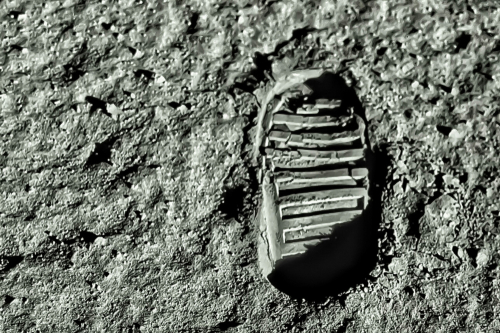I do tend to do too much looking back, but if I do, it is a function of the uniquely blessed era I was born into. Obviously, through no planning on my part and due solely from the cooperative actions of my parents and a loving God, I was a kid during the height of the United States’ mission to beat the Russians to the moon.
As we approach the 50th anniversary, I figured I might as well look back again — and anyway, looking forward to whatever limited time I have left is something I don’t wish to dwell on. The 1960s were a great time to be a boy. Not so great to be a parent, a teenager, or a young adult, but for a kid, this was a time of incredible adventure. And it was a time when the television set became a singular tool for family bonding over big events.
When Paul VI became the first pontiff to visit the “New” World in 1965, and first pope to leave Italy since 1809, we were forced to watch it. I was too young to appreciate it and it all seemed so formal and boring. But our dad insisted, and since his “man cave” was every room he was present in, we watched.
Give me a live broadcast of a launch in the early morning of a rocket ship with heroic astronauts strapped into capsules and I’m all in. Every launch would soon become the topic of choice on the schoolyard. Different kids had different favorite astronauts for a variety of completely random reasons. My friends and I could name all the Mercury, Gemini, and Apollo astronauts as readily as we could rattle off the names of the Dodgers’ infield.
What a time to be 12 years old.
I may not be 12 anymore, but the expansion of the television universe is tailor-made for my inner pre-teen, as it is now populated with multiple 50th anniversary specials of the landing on the moon. I have been able to share those thoughts and feelings with my own adult children, who completely missed out on the whole space race phenomena by decades. They couldn’t tell you the name of one shuttle astronaut…I could, but I’d have to go to Google first.
These specials have really brought back memories of what it was like sitting on the living room floor looking up at the black and white TV screen — yes, there were color TVs then, but one, a grocer’s salary did not have wiggle room in it for disposable income, and two, the live broadcast from the moon was in black and white anyway.
One thing that has been made clear in all the moon mission specials is how thoroughly marketed and managed the astronauts’ public lives were. A better and more in-depth rumination on that topic can be found in Tom Wolfe’s “The Right Stuff,” a book any self-respecting space junkie has read…more than once.
Like everything else, the reality of private lives do not always fit like a dovetail joint with the public faces the astronauts and their wives presented to the TV cameras and magazines. It must have been very difficult for these people, so used to being in control, to have their lives turned upside down by mandatory magazine photo shoots, interviews, and maintaining public images that were not mirrored at home. I’m grateful for that as well — at least the 12-year-old me is grateful. I didn’t need nuance. I wanted heroes…and I got them, and there is something to be said for the effort put into preserving that.
Regardless of their faults, and astronauts were not immune from them, what an incredible collection of men they were, trying to achieve one of the most extreme engineering feats in human history in a machine hurtling through space with less computer power than exists in a 7th grader’s smartphone.
One of the many advantages of having more computer power than the Apollo Command and lunar modules combined is that we can find all kinds of interesting nuances about the mission to the moon we were not capable of becoming aware of listening to only one of the three networks then in existence.
In a random search online I learned something that, if it isn’t true, should be: Apparently, the bishop of the Diocese of Orlando informed Pope Paul VI just before the launch of Apollo 11 that, according to a 1917 canon law, the moon would henceforth be part of his diocese since the voyagers originated in southern Florida — talk about the one universal church.
Robert Brennan is a weekly columnist for Angelus online and in print. His column Ad Rem won second place in the “Best regular column: Arts, leisure, culture, and food” category at the Catholic Press Awards in 2019. He has written for many Catholic publications, including National Catholic Register and Our Sunday Visitor. He spent 25 years as a television writer, and is currently the Director of Communications for the Salvation Army California South Division.
Start your day with Always Forward, our award-winning e-newsletter. Get this smart, handpicked selection of the day’s top news, analysis, and opinion, delivered to your inbox. Sign up absolutely free today!

